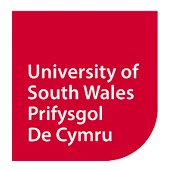Pontypridd RFC on surviving the pandemic and the need for a British Isles league
Executive board member of Pontypridd RFC Mark Rhydderch-Roberts says the WRU needs to reverse the depowering of the Premiership and why the four regions should embrace historic club names.
It was once a proud standard bearer for Welsh club rugby positioned at the apex of the game in Europe.
And while Pontypridd RFC remains one of the best supported teams in Welsh rugby, executive board member Mark Rhydderch-Roberts says as society emerges from the pandemic, there is a perfect opportunity for a fundamental reset of the game in Wales with greater recognition, funding and support for the semi Premiership clubs.

This he believes could be underpinned by a new British Isles league with the four professional Welsh regions rebranding as clubs and leveraging the heritage and history still attached to the historic Welsh clubs.
The plain speaking Crickhowell-born former investment banker, who played for Pontypridd and Bath, said that the sustainability of rugby in Wales, both on and off the pitch, requires competitive games played in meaningful leagues.
He believes that this is not currently the case, particularly with regard to the Pro-14, adding that the WRU has “depowered” the semi-professional Premiership clubs with its season-on-season cut in grant support and lack of any clear strategy for its development.
He also argues that the current player pathway does not fully utilise the talent pool in Wales, which undervalues the existing and potential role of the Premiership in developing young players.
Pre-pandemic, Pontypridd’s executive board, which includes Mr Rhydderch-Roberts (who also serves as treasurer and non executive director at Glamorgan Cricket Club), were well advanced in placing the club onto a sustainable financial footing aimed at eliminating annual losses of around £50,000 a year and developing commercial and events activities at Sardis Road.
Like the other Premiership clubs, Pontypridd has been in effective hibernation, but with teams back in training hopes are high on a return to matches with crowds as soon as is practicable.
Pontypridd’s pre-Covid annual revenues of around £450,000 have all but been wiped out with no match day or events revenues.
However, with its grant from the WRU (£60,000), pandemic related business support from the Welsh Government and Rhondda Cynon Taf County Borough Council (roughly £40,000) and some miscellaneous revenue, together with business tax relief, the club has secured around £120,000 of total funding.
With players furloughed and the business in cost saving mode, the club has recorded a small technical surplus despite outgoings over the period of more than £70,000. It has also secured a £50,000 UK Government backed Covid Bounce Back Loan.
Mr Rhydderch-Roberts said “We have taken all the necessary measures to ensure that the club remains solvent.
“This period has been extremely challenging. We are incredibly grateful for the ongoing support of the players, our members, our supporters, our sponsors and everyone connected with the club.”
However, with the return of crowds and the end of the furlough scheme imminent, he said that Premiership clubs remained “light years away” from the funding that the second tier English Championship clubs receive from the RFU, which pre Covid was set at a minimum of £550,000 per annum for each club.
“The generous bailout of English rugby (totaling in aggregate approximately £135m) by the UK Government means that English Championship funding will be retained at a reasonably high level, at a rumoured £350,000 per annum for each club.
In 2019, the Welsh Premiership clubs received WRU grant funding of £92,000 annually per club, which dropped to £75,000 in 2020. This year it is £60,000 and is scheduled to be reduced further in 2022 to £50,000.
These numbers show the harsh reality of the funding gap in Welsh rugby. Mr Rhydderch-Roberts, who in his investment banking career of nearly 30 years held senior executive roles with UBS Warburg, Schroders and Swiss Re, said the WRU did not seem to have any plan to bridge the funding gap with other leading rugby nations.
He added: “The last 12 years has seen the Welsh national side achieve great success. However, it appears to have been at the cost of starving the rest of the game in Wales of adequate funding and any coherent strategic direction.
“This is not in any way appropriate for a leading rugby nation. We have been fortunate to have had a world class coaching team and player cohort at international level.
“Beneath this, the game feels incredibly fragile at all levels – financially, in terms of participation, and in terms of its changing role and place in the wider community. It is difficult to see how international success longer term can be maintained if the game more generally in Wales is in disarray.
“With regard to the Premiership, the WRU’s strategy of benign neglect has depowered the clubs by effectively cutting the grant in half over four years, with the effect of making it semi-amateur not semi-professional. This has been compounded by the recent decision to locate the Premiership within the community game WRU silo. This is a significant strategic and operational error.”
Mr Rhydderch-Roberts said he is looking to work with the other Premiership clubs and the WRU constructively to develop the Premiership’s potential on every level.
However, he added: “The key question remains as to where WRU funding support goes longer term and what is their strategy for the Premiership, if indeed one exists? At present, there is zero visibility on these issues which is making strategic and operational planning at club level virtually impossible.
With regard to TV revenue he said: “The Welsh Premiership must be the only professional sport where the providers of the product, the clubs, have no idea what their share of TV revenues are as the WRU claim that this forms part of the ever-decreasing grant funding.
“One thing that is clear is that despite minimal marketing, viewing figures for Premiership games screened on the BBC and S4C have been consistently strong. It is possible that Premiership matches next season will be the only live ‘free to air’ club rugby in the UK. This has significant potential for enhanced monetisation, as our product is excellent and exciting to watch, but is currently woefully undersold. We are also looking at the potential to stream live games – the success of this in cricket last season was dramatic. There is no reason this cannot be replicated in the Premiership.”
Residual challenges resulting from the pandemic notwithstanding, Mr Rhydderch-Robert said it is “completely illogical” that Premiership league fixtures are not currently allowed to resume until January 2022.
He added: “The WRU have indicated that we will have a return to training and 10s and 7s games over the summer with the possibility of a cup competition in the autumn. Then the season finishes in November, with a seven week break before competitive fixtures resume in January.
“Besides the fact that this will cause untold disruption on virtually every possible level, it seems to completely ignore the success of the UK vaccination programme and the fact that we are currently lagging months behind England in return to play and spectators.
“The Christmas holiday period is key for revenues both on and off the field. The brutal reality of Premiership rugby is that without spectators there are no gate receipts, no bar, catering or events revenues, and no sponsorship revenues. Until that changes, Premiership rugby is completely unviable. This fact seems to have escaped the WRU.”
Looking ahead he said it is imperative that Premiership clubs play competitive fixtures in a meaningful league, while providing a consistent and high quality development pathway for young players, adding that it was “disappointing, and somewhat inexplicable”, that the regions have failed to access fully the potential of the Premiership pathway for several years.
The Ponty director said: “What has happened, and I have observed it at first hand, is that the talent pathway has become increasingly narrow, small, and inward looking. It is centred almost exclusively on the four regional academies. The prevailing culture within the academies is often nepotistic, parochial and dominated by an all pervasive ‘cultural group think.’
“So when you factor in the funding constraints, realistic opportunities for talented young players to reach the professional ranks in Wales are limited which is partly why so many increasingly play in England or are lost to the game entirely.
Where did Liam Williams come from? A scaffolding company via Waunarlwydd RFC. Were did Aaron Wainwright come from? He played for Whiteheads in Newport. They didn’t go through any academy system. The outstanding prop Wyn Jones, an international and now a British Lion, spent several years developing as a player in the Premiership with Llandovery.
“I believe that the Premiership has a pivotal role to play in the development of professional and international players – this is supported by all empirical evidence as Nigel Davies so eloquently detailed in his 2018 study.
“The whole talent pathway needs to be open and transparent and not effectively ring fenced in the regional academies where it is often more difficult to get out of an academy than to get in. It is talent wastage on an epic scale.”
On the Pro-14 he said that Welsh rugby fans seem generally indifferent to it. He added: “The intensity of the league is not high, as Dan Biggar recently pointed out, and the English Premiership games generally make much better viewing with significantly higher skills on show and excitement.
“This is in stark contrast to the dour, collision based rugby style that tends to predominate in the Pro-14. I am an optimist, but the inescapable reality is that Welsh regional rugby has failed on every commercial and sporting metric since its inception.
“It is a mystery to me as to why no coherent strategy has emerged to change this. One thing is certain, if the WRU do not drive this change proactively, it will be imposed on them.”
He is an advocate of a British Isles league structure, which many in Wales are also supportive of. However, even if there was agreement in Wales, Ireland and Scotland – and potentially the four South African teams who will bolster the Pro-14 next season too – why would the English Premiership be interested?
There is also the matter of trying to align the separate TV deals of the two leagues.
Mr Rhydderch-Roberts said: “Yes the English might resist initially, but we need leadership to be at least in a position to ask the question. We now have CVC (private equity firm and minority shareholder in both leagues) involved who will do whatever it takes to maximise the financial potential of the game and CVC can be a catalyst to bring the numerous opposing factions to the table. At present, particularly below international level, the game has significant untapped commercial potential.”
He said any British Isles League would need a multi-divisional structure with promotion and relegation into the top tier with a clear route to promotion to the top of the pyramid.
Mr Rhydderch-Roberts said potentially Pontypridd and other Premiership clubs would be interested in participating in such a development, but recognises the significant financial and performance gulf that currently exists between the Premiership and the English Championship.
He said:” I asked Justin Burnell (Pontypridd director of rugby) where we would be against a mid-table English Championship side and he indicated that we would probably concede 50 points. This clearly illustrates the fragility of Welsh rugby below international level. I do not think Welsh rugby should accept this state of affairs so meekly.
“We can change this. If you put the English Championship and the Welsh Premiership together at the moment we would obviously be uncompetitive initially. However, I am convinced that over time and with the right support and funding we would develop rapidly. More importantly, a British Isles league with a strong emphasis an Anglo-Welsh fixtures in the Premiership is a definitely a product that fans want to see.”
Regardless of whether a British Isles league happens or not, Mr Rhydderch-Roberts refutes the argument that Wales cannot compete commercially with the English and French clubs because of socio-economic factors.
He said: “With the right people, with the right skills, Wales can compete with anyone. Yes, we face some unique economic challenges, but they can be solved by adopting a much more innovative approach to the longer term funding of our game.
“My concern at present is that until the WRU accepts that Welsh rugby has a number of structural and financial problems and forensically identifies the causes and possible solutions, no meaningful change is possible and Welsh rugby will continue to drift. We seem content to accept a slide into mediocrity without question. I certainly do not think anybody who cares about the game in Wales should accept this.”
There are those in Wales who also believe that for the regions to be competitive in Europe, Wales can only sustain two fully professional clubs.
Mr Rhydderch-Roberts said: “If we went down to two regions we may as well all pack up and go home. I actually think we need more professional clubs in Wales and at least six playing at the top level in the UK, with at least one in the English Premiership to concentrate the Welsh playing diaspora. However, they need to be clubs that people actually care about, identify with, and support.
“A logical start would be to revert to the original club names and the re-naming of Cardiff Blues is a small step in the right direction. It has taken the regions and the WRU over 20 years to fail to realise that the abandonment of 150 years of history, heritage, tribal loyalties and incalculable brand value to be replaced by four abstract regions based on geographical and cultural illiteracy must rank as one of the most damaging decisions in the history of any professional sport – and the consequences of that decision continues to act as a structural drag on Welsh rugby. It really doesn’t have to be this way.
“Rugby is a business as well as a sport. If a business clearly isn’t working just change it. But where is the ambition, the aspiration, the enterprise? Even from the most basic marketing perspective, reverting to club names would release significant untapped value.”
He believes that part of the reason for a “strategic inertia” in Welsh rugby stems from the destructive effect of competing self-interest. He said: “The ECB runs cricket in a highly professional and commercial way and is staffed by high quality individuals with a wide range of business and sporting experience.
“The performance of the ECB during the pandemic has been nothing short of remarkable – and all achieved without the “‘help’ of American private equity companies. I am certainly not saying people in rugby are not professional – but there appears to be little consensus on a vision for the professional and international game.
“The community game is largely ignored and naked self interest prevails. In cricket, there are, of course, disputes and disagreements but there is generally a shared higher vision to ensure that the good of the whole game at all levels remains a central objective”.
Despite the challenges he remains upbeat on the prospects for the Premiership and Pontypridd. As far as the Premiership is concerned, he believes the post-Covid rugby landscape could offer the opportunity to restore the competition to a central role in Welsh rugby.
Pontypridd RFC is receptive to working with the local council, which owns the freehold on Sardis Road, as part of the wider development of the town. There is a strong desire on the part of stakeholders to see the ground, barely 12 miles from the Welsh capital, developed into one of the key sporting venues in Wales.
The club also plans to appoint a general manager when rugby returns who would effectively have a full time commercial role. The club is also looking to enhance the match day experience for supporters by lengthening the offering to potentially include youth and women’s matches and maximising the utilisation of the artificial playing surface for a variety of sports and events.
Additionally, it is looking to refresh the fixture list with the introduction of a number of limited friendlies against English and French opposition.
Mr Rhydderch-Roberts said: “Pontypridd was ranked the sixth best club in Europe in the late 1990s. In the British and Irish Cup, before changes to the format rendered it unattractive to teams and fans alike, we regularly beat the top English teams.
“So, it wasn’t that long ago that we were at the heart of European and UK rugby. That desire, aspiration and passion to succeed on every level remains embedded in the club.”




















